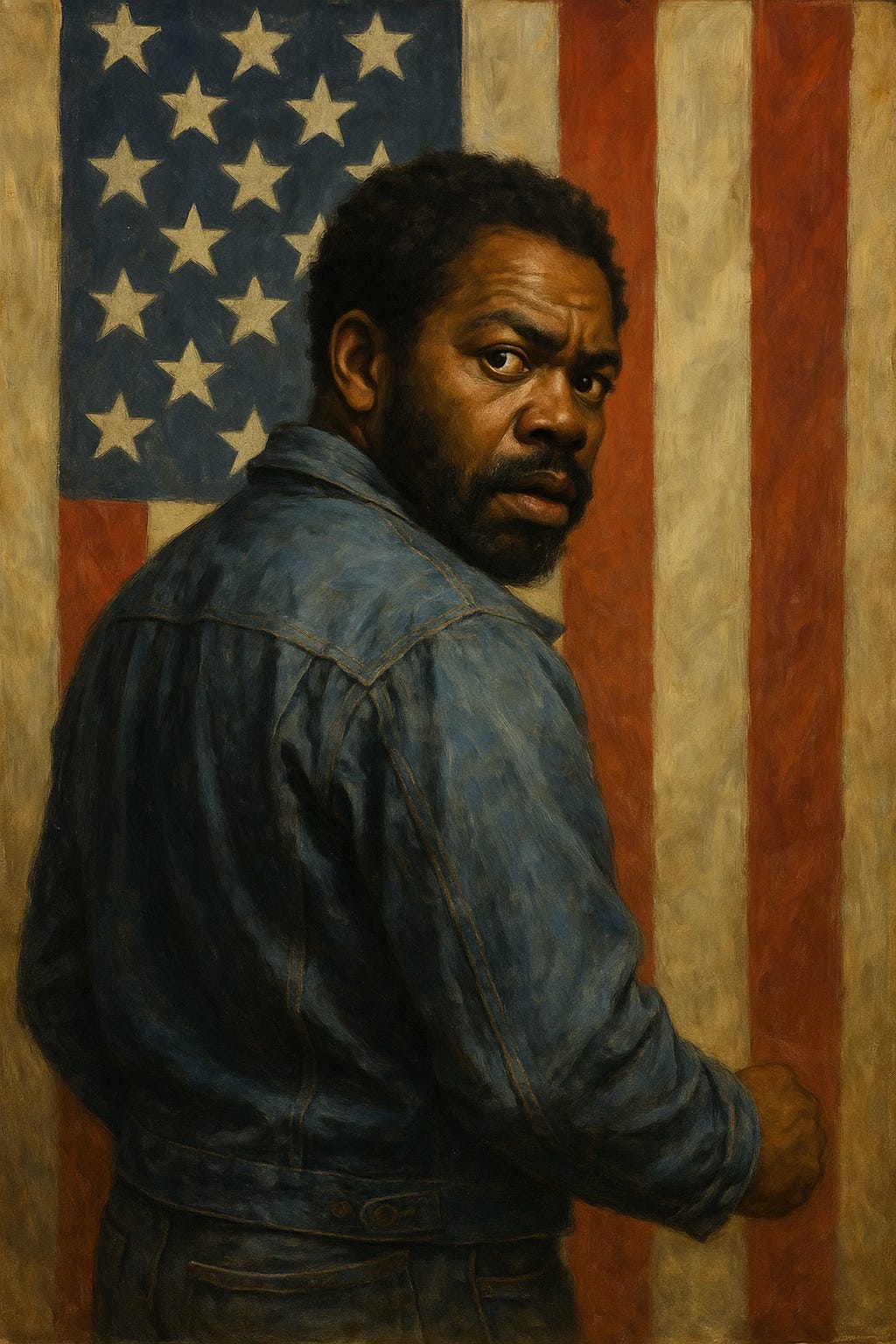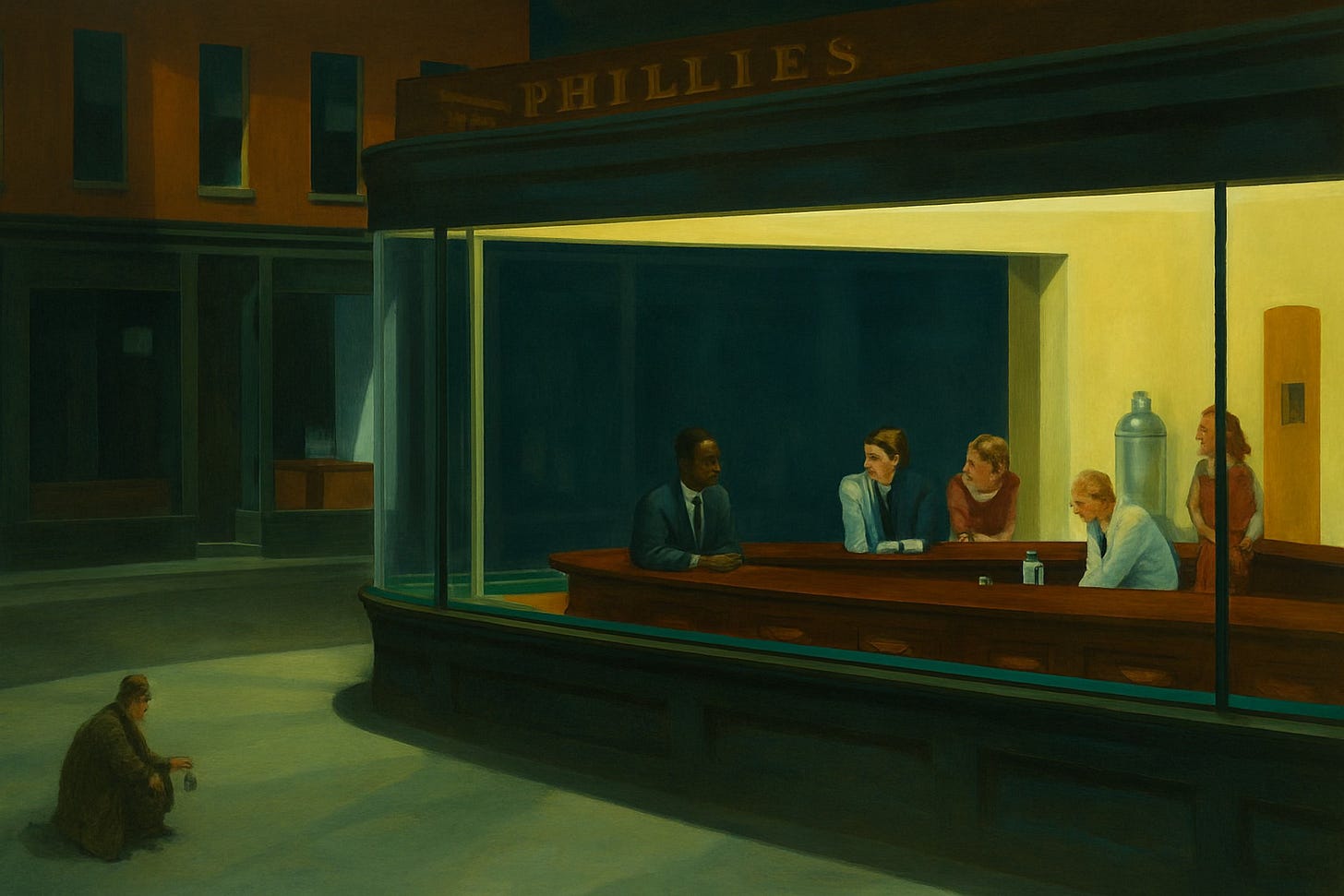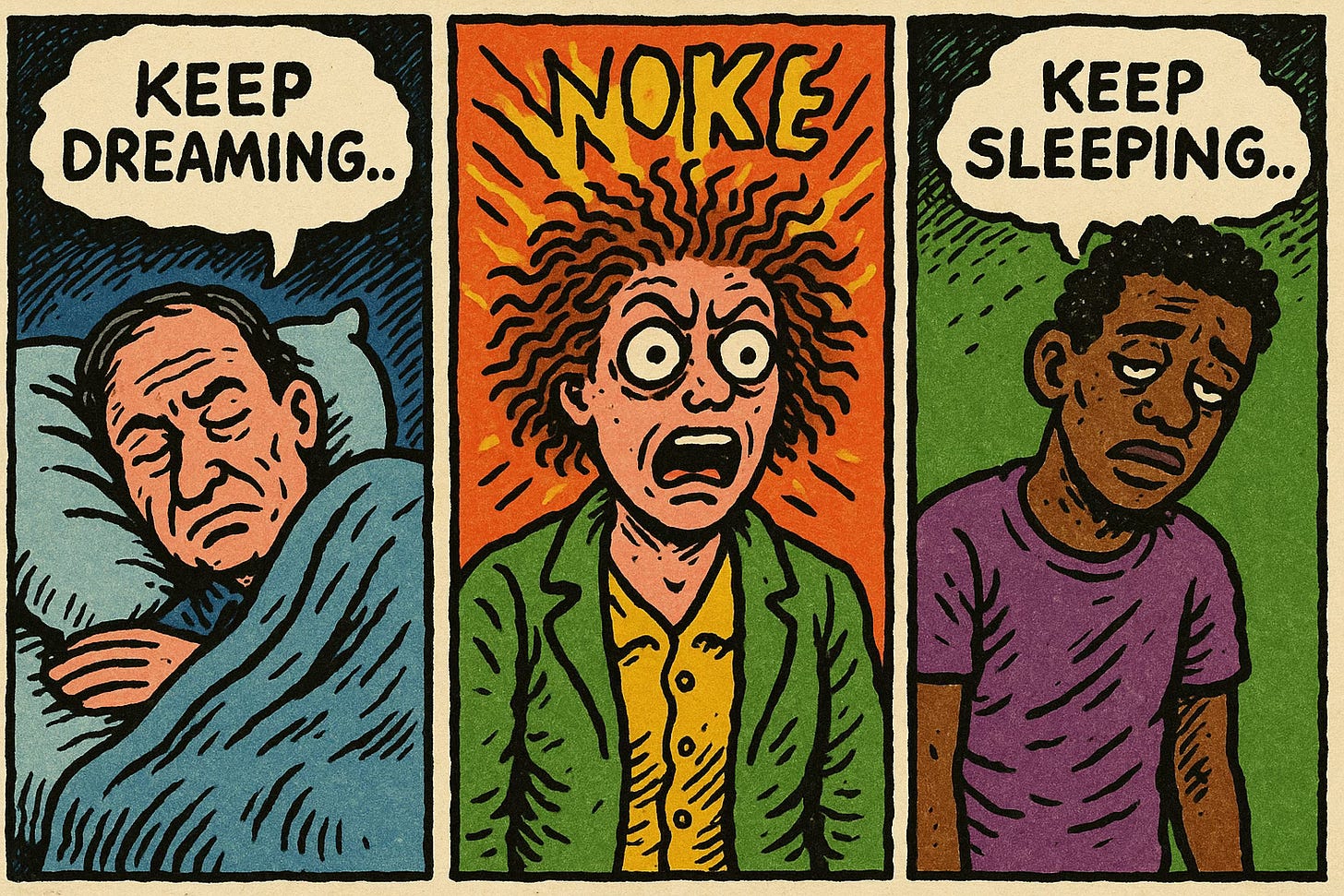ON NOT DREAMING A BETTER LIE
Some of us realized that the American Dream is a lie. However, instead of waking up, we just traded nightmares.
A quick reminder
The word woke originated in African American Vernacular English (AAVE), where it meant staying awake, alert to racial injustice and social oppression. Over time, it came to signal broader awareness of structural inequalities: gender, sexuality, environment, class. Today, the word is both a rallying cry and a cultural weapon used with pride by some and as an insult by others. In this article, I reflect on why wokeness provokes such backlash, and how even among the awakened, fantasy can creep back in through the back door.
Waking Up From One Dream, Only to Enter Another
For some, being woke is worse than being ignorant. It’s a violation of the pact: the silent agreement to keep dreaming the American Dream. After all, that dream is seductive. It promises that anything is possible, that the system works, that if you play by the rules and work hard, you’ll make it. But like many fantasies, it requires you to be asleep to believe it.
Wokeness interrupts that slumber. It flips on the lights and shakes you awake. And, naturally, your first instinct is to protest: “Turn it off, let me sleep.” But once your eyes adjust, there’s no going back.
Seeing hurts. Understanding irritates. Questioning drains you. But that discomfort is the price of freedom and isn’t just decorative.
We’ve seen these wake-up calls all around us: the Black Lives Matter protests revealing the chasm between promise and reality; movements for trans rights and environmental justice pulling the curtain back on who pays the price for “progress”; wage gaps, police violence, colonial continuities, each one a slap on the face of the dreamer.
But not all awakenings lead to clarity. Some, in their rejection of the American Dream, fall into a different kind of fantasy: a purified moral world where saying the right things counts more than changing anything real. This is the trap of ultra-wokeness: a dream in reverse, where ideological hygiene replaces complexity, and symbolic rituals substitute for structural change.
We see it when a public figure is canceled without possibility of dialogue or growth. When online activism turns into courtroom theater. When solidarity becomes a performance, and nuance becomes betrayal. The ultra-woke trade one form of comfort for another: the false peace of the dreamer for the false certainty of the zealot.
But real wakefulness demands more: self-doubt, friction, sustained attention. To be awake is not an identity. It’s a practice, a discipline, a refusal to be lulled by any dream, no matter how righteous it seems. If you are looking for safe places, your quest is not for political and personal awareness.
Wokeness upsets those who fear losing their privileges. But ultra-wokeness risks creating new illusions, another fantasy to fall asleep in.
To wake up is not to dream a better dream. It’s to stop dreaming entirely. It’s to live with the full weight of reality and still choose to stay present. Because yes, sleeping is easier. But waking up—even when it hurts—is the only honest place to begin.
Stay awake.
Stay tuned.
¡Hasta la próxima pinga, amig@s!
josesoplanucas@gmail.com




